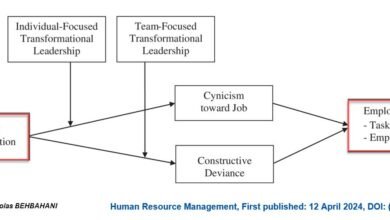
By | Ramesh Ranjan | Editor www.humanengineers.com
India was once considered as the knowledge capital of the world. Taxila and Nalanda Universities are one of the first known universities in the world. Taxila also known as Takshashila, flourished from 600 BC to 500 AD. University at Nalanda functioned from 500 to 1300 AD. . Scholars from around the world used to come to India in pursuit of knowledge.
By the late 17th century India became the largest economy and manufacturing power in the world, producing about a quarter of global GDP, before fragmenting and being conquered over the next century. India was the world leader in manufacturing, producing 25% of the world’s industrial output up until the mid-18th century, prior to British rule.
Off course the during the course of the next 2 centuries India has slipped in the world’s economic landscape and only recently has been making a modest climb as one of the fastest growing economies in the world.
India until recently was considered synonymous with poverty, illiteracy, a land of snake charmers & religious bigots & bollywood . But another product is becoming a winner, too: exporter of chief executives of major multinational companies around the world. It is now producing world-class leaders & chief executives at iconic global companies, governments & organisations world wide.
Are we seeing a resurgence of the rise of India especially in the Knowledge & Leadership arena. Is India reclaiming its lost glory that it once enjoyed. They now are in control and lead some of the most sensitive and powerful organisations. They define the future of Techology and shape the markets / global economy.
They are occupying the highest position in some of the most reputed and powerful organization’s in the world :
- Shantanu Narayen, Adobe
- Sundar Pichai, Alphabet, the parent company of Google
- Satya Narayana Nadella, Microsoft
- Rajeev Suri, Nokia
- Punit Renjen, Deloitte
- Vasant “Vas” Narasimhan, Novartis
- Ajaypal “Ajay” Singh Banga, Mastercard
- Ivan Manuel Menezes, Diageo
- Niraj S. Shah, Wayfair
- Sanjay Mehrotra, ScanDisk
- George Kurian, NetApp
- Nikesh Arora, Palo Alto Networks
- Dinesh C. Paliwal, Harman International Industries
- Piyush Gupta, DBS
- Laxman Narasimhan, Reckitt Benckiser
- Arvind Krishna, IBM
- Sandeep Mathrani , We Work
- Revathi Advaithi, Flex
- Amar Bose, Bose Corporation
- Gopichand P. Hinduja, Hinduja Group
- Radhika Jones, Editor-in-Chief, Vanity Fair
Former CEOs
- Indira Nooyi, ex CEO of Pepsico
- Francisco D Souza, CEO & Vice Chairman, Cognizant
- Ashok Vermuri, Conduent
- Anshu Jain, Former CoCeo Deutsche Bank
- Rakesh Kapoor former, chief executive of Reckitt Benckiser
In Governments
- Nikki Haley, 46, United States Ambassador to the United Nations
- Rishi Sunak is the British British Finance Minister
- Priti Patel is the British Home Secretary
In Global Non Corporate Organisations
- Anshula Kant MD and Chief Financial Officer (CFO) of the World Bank
- Gita Gopinath’s Chief Economist of the International Monetary Fund (IMF)
World Management Thinkers
- Late CK Prahalad was ranked Nos. 1 in the Thinkers 50 for 2 years before his untimely demise.
The list is not exhaustive and there could be many more out there.
In a study of S&P 500 companies, Egon Zehnder found more Indian CEOs than any other nationality except American. According to a study in Harvard Business Review, India’s export share of Fortune Global 500 company CEOs — that is, CEOs who are heads of companies headquartered in a country not their own — is 30 percent.
What is it that Indians have it in them to be able to rise to such great heights?
Indians grow up in an atmosphere where cultural diversity – of religion, language, faith, and caste, among other things – is a given. Hence they are comfortable in dealing with Diversity and can get along with any one.
They have grown up in an environment that never really supported their growth. They lived with sparing resources, bureaucracy, competitive society and in a price sensitive demanding market. With 1.3 billion population the rise to the top, be it in School, College, Society or the Corporate world, they have been through tough competition and it takes a lot to rise to the Top.
They had to be frugal, adopt a Jugaad approach to solve day to day living and problems. Hence they learnt to be innovative, frugal in their spending and adopt adaptive skills in their work and social environments. They have learnt to “Do more with Less”. They have learnt to be shrewd businessman and value the ‘value of MONEY’. They are focused on Return on Investment and very responsible with finance.
As a result they have learnt and grown the hard way.
They are highly educated, embraced technology long before others, tech saavy, are quick at learning and open to continuous learning. They are highly ambitious and more importantly focus on values and character over charisma. They are religious, GOD fearing and humble in their approach.
No wonder the share holders, markets, investors and employees have reposed their trust on these Indians to lead their organisations into the future.
It definitely is a cause for celebration that so many Indians have made it to the top of some of the world’s most valuable & iconic companies but ironically Indian companies barring a few have made waves in the global markets. Only time will tell whether we will be able to replicate our global success in Indian environment ……..






